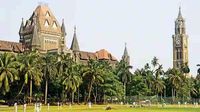The University of Mumbai has announced revisions to several examination schedules due to a scheduling conflict with the Maharashtra Common Entrance Test (MHT-CET) slated for later this year. The affected exams, primarily in the fields of Commerce, Management, Science, and Arts, were originally set to take place between March 24 and April 3, 2025. These changes were confirmed by the Board of Examinations & Evaluations at the university on March 19, 2025.
In a significant move, the university has rescheduled various examinations across multiple disciplines, prompting students to adjust their study schedules. The revised dates indicate that examinations set for March 24 will now take place on April 5; those planned for March 25 have been moved to April 7; and so forth through the originally planned schedule. Candidates will see a new timetable for the affected dates as follows:
These rescheduled dates apply to a range of examinations for various undergraduate programs, including but not limited to those under the Commerce and Management faculties. Similarly, the Arts examinations that were originally planned to start on March 26 will now be held in April, stretching from the 5th to the 23rd of that month.
The reason for this rescheduling is clear: the Maharashtra CET registration is an essential hub for prospective engineering and health sciences students. Registration for the MHT-CET commenced on December 30, 2024, and ended on February 15, 2025, making it a tightly controlled timeframe for students who hope to branch into these fields.
As per the new schedule, the Engineering (PCM group) exams are marked for April 19 to 27, while the Pharmacy (PCB group) exams are slated from April 9 to April 17. Students completing the MHT-CET will have a unique opportunity to prove their academic abilities across a spectrum of fields and disciplines.
The exam will be conducted online under the Computer-Based Test (CBT) format over three hours, with specific subjects adhering to particular language categories. For example, Mathematics will only be available in English, while Physics and Chemistry can be attempted in English, Urdu, or Marathi. This multilingual approach demonstrates the university's commitment to accommodating diverse student backgrounds.
In terms of format, the exam is structured into two sections: Section 1 will cover Physics and Chemistry, while Section 2 will include either Mathematics or Biology, depending upon the candidate's stream. A total of 150 questions will be asked, broken down into 50 questions per subject, ensuring a comprehensive assessment. Importantly, there is no negative marking for incorrect answers, allowing students to attempt all questions without fear of penalties.
Students and candidates gearing up for the exams must stay updated with the university's official announcements and schedules, as changes may be instituted closer to the exam dates. With the MHT-CET set to commence in the following weeks, students are encouraged to utilize resources available through their respective academic departments and the university's official platforms.
Looking forward, stakeholders, including students, educators, and administrative personnel, will closely monitor how these scheduling changes impact not just exam outcomes but also future academic trajectories for many students enrolled at the University of Mumbai. This process will undoubtedly set the tone for upcoming academic years and give insight into how universities can adapt to enforce rigorous educational standards while remaining flexible to student needs.









